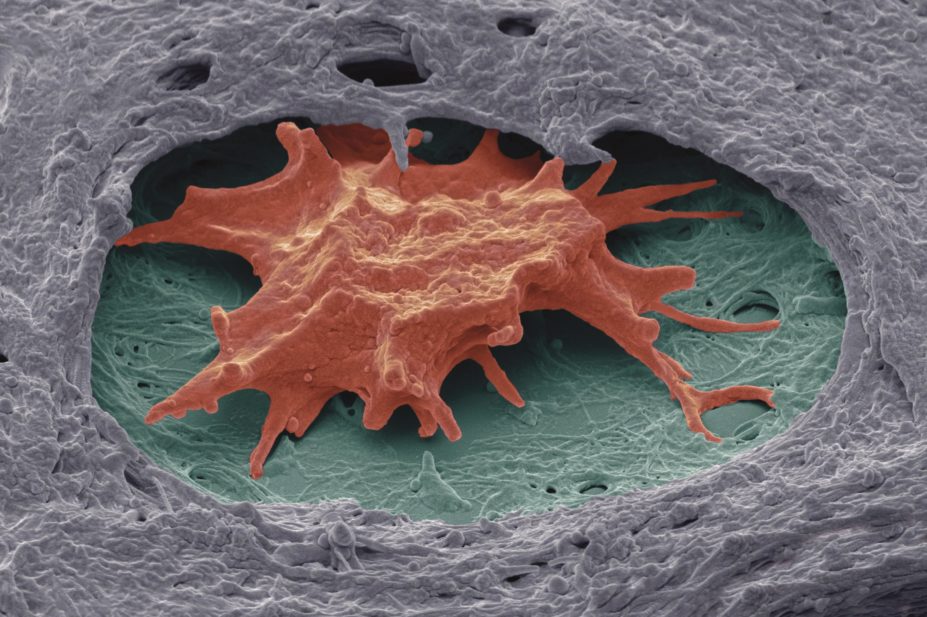
Steve Gschmeissner / Science Photo Library
Women who take hormone replacement therapy (HRT) are at a higher risk of developing ovarian cancer, even if it is taken for less than five years, suggest the results of a meta-analysis published in The Lancet (online, 13 February 2015).
The study, which analysed individual participant data from 52 epidemiological studies, indicates that women who use HRT for just a few years are around 40% more likely to develop ovarian cancer than women who have never[1]
taken it.
The research, funded by the Medical Research Council and Cancer Research UK, looked at 21,488 women with ovarian cancer, mostly from North America, Europe and Australia.
The study suggests that five years of HRT use starting at around 50 years of age would result in about one extra case of ovarian cancer for every 1,000 users and one extra ovarian cancer death for every 1,700 users.
“The definite risk of ovarian cancer, even with less than five years of HRT, is directly relevant to today’s patterns of use with most women now taking HRT for only a few years. It has implications for current efforts to revise UK and worldwide guidelines,” says co-author Dame Valerie Beral from the University of Oxford.
The risk was observed for two of the most common types of ovarian cancer – serous and endometrioid ovarian cancers – but not for the two less common types – mucinous and clear cell ovarian cancers. No difference in effects was observed between the two main types of HRT – oestrogen only or oestrogen-progestagen preparations.
There are around six million users of HRT in the UK and United States. At present, the World Health Organization, European and US guidelines about HRT do not mention ovarian cancer, and the UK guidelines, which are due to be revised, state only that risk may be increased with long-term use.
One specialist pharmacist said that she has never identified ovarian cancer as a major risk with HRT. “Most of the women we see in our specialist clinics are concerned about their risk for breast cancer; now I expect to have questions regarding their ovarian cancer risk,” says Nuttan Tanna, pharmacist consultant at Women’s Health and Older People at London North West Health Care NHS Trust.
The drug regulator, the Medicines and Healthcare Products Regulatory Agency, advised that the lowest effective dose of HRT should be used for the shortest possible time. It says it will evaluate the findings of the study and its implications for shorter term use and update product information as necessary.
References
[1] Collaborative Group on Epidemiological Studies of Ovarian Cancer. Menopausal hormone use and ovarian cancer risk: individual participant meta-analysis of 52 epidemiological studies. The Lancet 2015. doi:10.1016/S0140-6736(14)61687-1.


